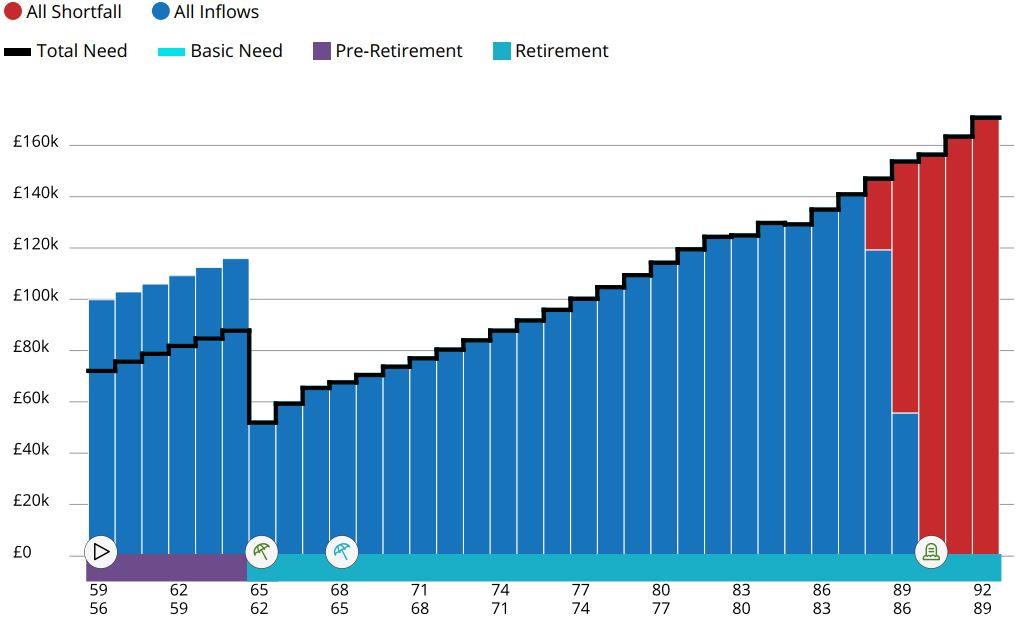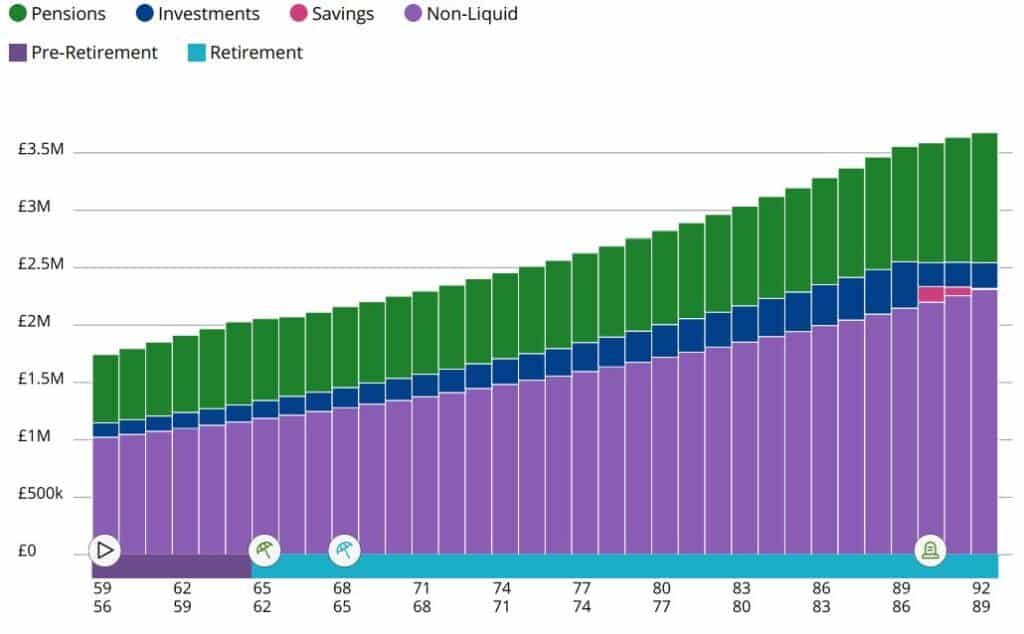Financial planning
Cash flow modelling
Cash flow modelling provides a simple, visual representation of your financial position, and by regularly updating this to reflect any changes in your circumstances, we can ensure you remain on track to meet your objectives.

Cash flow modelling
Cash flow modelling plays a key role in our financial planning, by allowing us to provide detailed forecasts of our clients’ current and future financial situation, including their income versus expenditure, net worth and tax position.
After inputting some basic information, including income, expenditure, asset values and debts, our software provides a visual long term financial forecast, based on assumed rates of investment growth, inflation and earnings increases (which can be adjusted).
Cash flow modelling applies a scientific approach to a subjective area of financial planning, providing a ‘road map’ that ilustrates how likely you are to achieve your objectives, and what planning, if any, may be required to make these objectives more achievable.
By delivering this live on screen, it allows us to quickly alter various features to build new scenarios, tailored to each client’s needs or objectives, which can help in answering some of the most difficult financial planning questions, such as:
- What age can I afford to retire?
- Can I afford to undertake IHT planning?
- Am I saving enough for retirement?
- Do I have enough protection in place if I can not work or pass away?
- What would the impact of care fees be on our financial position?
This graph shows a client’s cash flow, pre and post retirement. The red bars on the right hand side are suggesting that they may begin to run out of liquid assets later in life, meaning if they want to retire at their desired retirement age (65), they may need to consider saving more.

This graph shows a client’s asset position, pre and post retirement. The upward trajectory means that, despite withdrawing funds from their investments to fund their retirement, their assets are still growing in value, meaning there may be scope to consider IHT planning to reduce the size of their taxable estate.

